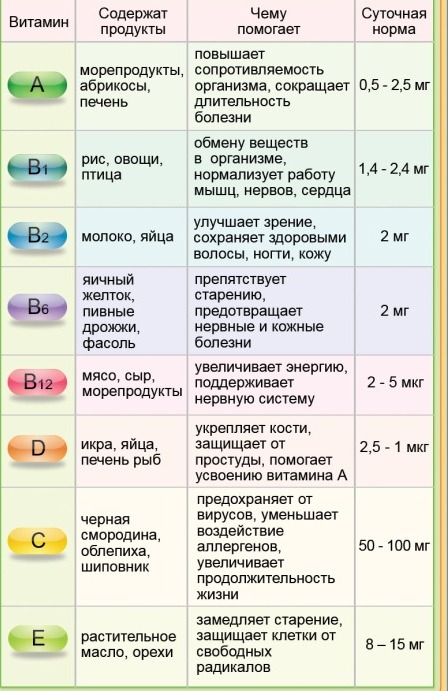It is worth throwing a quick glance at the showcase of any pharmacy, as it becomes obvious: today vitamin and mineral complexes — it is pharmaceutical product No. 1. For hair and for the skin, to restore the nervous system and to increase libido, for pregnant women and for those engaged in heavy physical labor — manufacturers seem to have considered all categories of the population when developing vitamins.
But many refuse to take such drugs and continue to believe that rational nutrition excludes even the very possibility of beriberi.
So is it really and do should take vitamins if you can replace them with food?
Should I drink vitamins: Arguments "for"
The need for vitamins for human health cannot be overestimated. These substances take part in almost all processes that occur in organs and tissues. The vast majority of vitamins enter the body directly with food. But that insignificant part of them, which is synthesized in intestines, needs "reagents" — in & nbsp; various chemical compounds, the source of which is also food.
It seemed the system was well thought out and capable of self-regulation. But in some cases, the need for vitamins increases so much that food products are simply not able to make up for their deficiency. This happens under the following circumstances:
-
Any chronic diseases in which the breakdown and absorption of nutrients is impaired. These can be inflammatory processes in the stomach and intestines, diseases of the liver and gallbladder, pancreatic enzyme deficiency.
-
Severe physical or mental stress that increases the need for vitamins.
-
Chronic stress that forces the body to work at the limit of its capabilities.
-
Sleep disorders, as a result of which the body does not have the opportunity to fully recover.
-
Eating disorders (anorexia, bulimia, mono diets, critically low calorie diets).

Also, taking vitamins in the form of complex preparations or any vitamin separately may be recommended by a doctor if he sees reasons for this.
Read also: Biologically active supplements: for whom it is useful and how to choose
For example, during antibiotic therapy, vitamins of the B group are prescribed, the deficiency of which develops in the first place, since antibiotics drastically inhibit vitamin metabolism. And for eye diseases, decreased visual acuity and other ophthalmological conditions, the doctor can include vitamin A in the treatment complex, as one of the most important substances for eye health.
In all of the above cases, it is almost impossible to make up for the lack of vitamins with the help of food, since for this you will have to eat a huge amount of food. In addition, the vitamin composition of products can vary greatly depending on the season and storage conditions, and water-soluble vitamins and may not survive at all. heat treatment or even cutting, as they are destroyed at high temperatures or oxidized upon contact with air, water and metal.
Read also: Do Do You Really Need Vitamin Supplements?
Should I drink vitamins: arguments "against"
In in most cases, the desire to replace vitamins — the result of distrust of & nbsp; the latter. As the main argument, the synthetic origin of these substances is usually given, in contrast to the natural composition of the "grocery" products. vitamins. This is true to a certain extent: if a person has any problems with the immune system, it can perceive synthetic molecules as foreign substances and react to allergies.
In addition, if you good nutrition, additional intake of vitamins can lead to an overdose of some of them.

It is not necessary to take vitamin supplements if you can accept each of the following statements:
-
You don't have any chronic diseases of the internal organs.
-
You feeling well, you are not suffering from unexplained tiredness, drowsiness or irritability.
-
Your hair, nails and skin look healthy.
-
Your diet is balanced and you do not adhere to any "ideological" food systems (vegetarianism, raw food diet or others).
-
You are not exposed to increased nervous or physical stress.
-
You sleep enough time (at least 7 hours).
-
You do do do drink do not smoke.
Even if you fall out periodically from this list (for example, fasting days or you have episodes of insomnia), this will not lead to a vitamin deficiency. But if any problems have become permanent — perhaps it makes sense to consult a doctor who will prescribe "targeted" vitamins with accounting for the complaints you approached.
Read also: The harm of dietary supplements: myths and facts about supplements
You might be interested in: Gymnastics for the office.






Add a comment